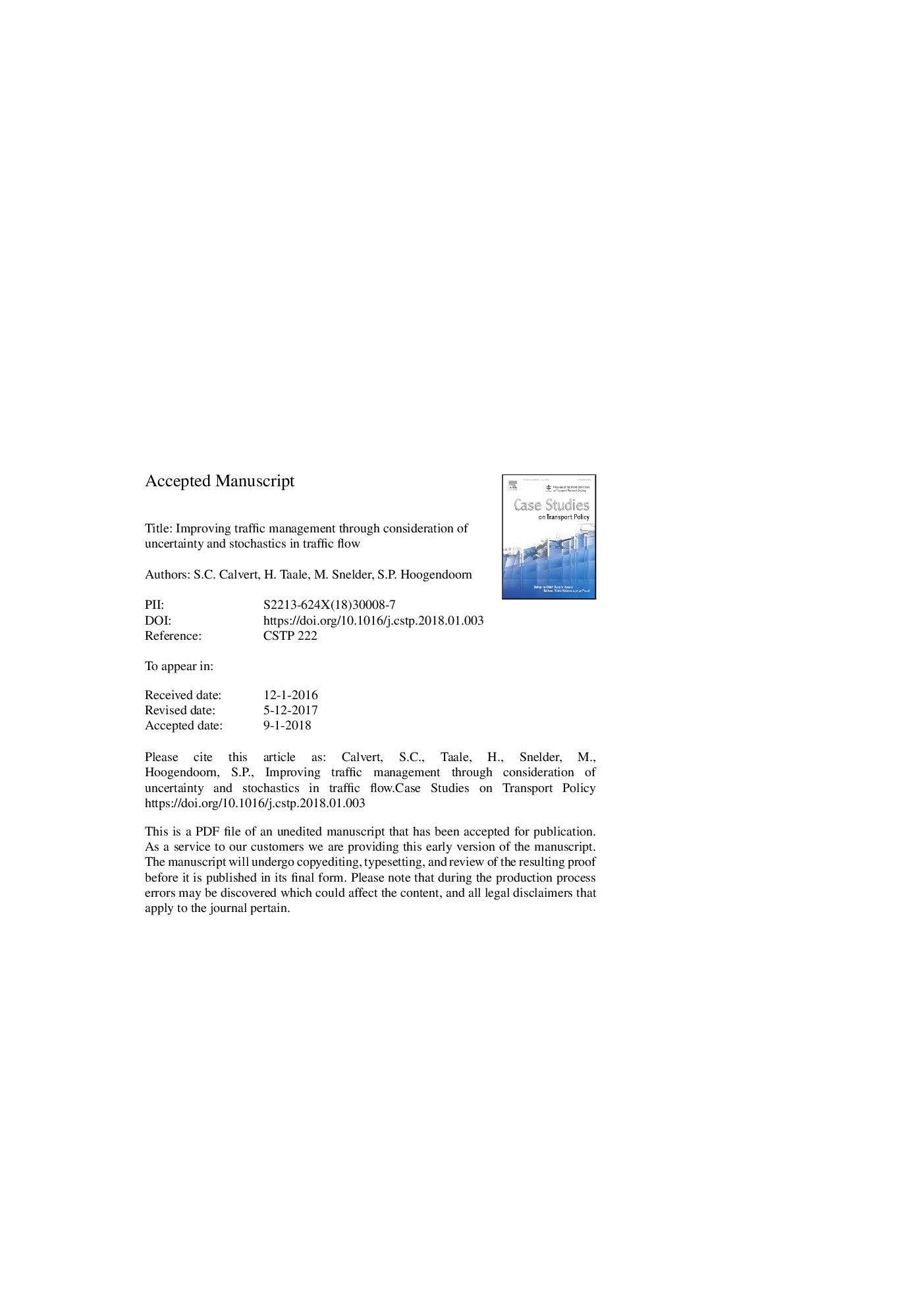| Article ID | Journal | Published Year | Pages | File Type |
|---|---|---|---|---|
| 6702212 | Case Studies on Transport Policy | 2018 | 31 Pages |
Abstract
In a bid to cost-effectively tackle congestion, traffic management is often seen as a key option to utilise road capacity. Prior to the application of traffic management measures, a-priori analysis allows the effectiveness of measures to be judged and where necessary adapted. However, current approaches do this without considering the effects of stochastic uncertainty and fluctuations in traffic flow. These stochastic effects have been shown to substantially influence the evaluation of traffic management measures. In this contribution, a methodological framework is proposed and demonstrated in a multi-part case study, applying approaches that explicitly consider stochastic variations and applications for traffic management. The results of the case study demonstrate the effectiveness of the models and highlight the necessity to consider uncertainty and fluctuations when a-priori evaluating traffic management measures.
Related Topics
Physical Sciences and Engineering
Engineering
Civil and Structural Engineering
Authors
S.C. Calvert, H. Taale, M. Snelder, S.P. Hoogendoorn,
